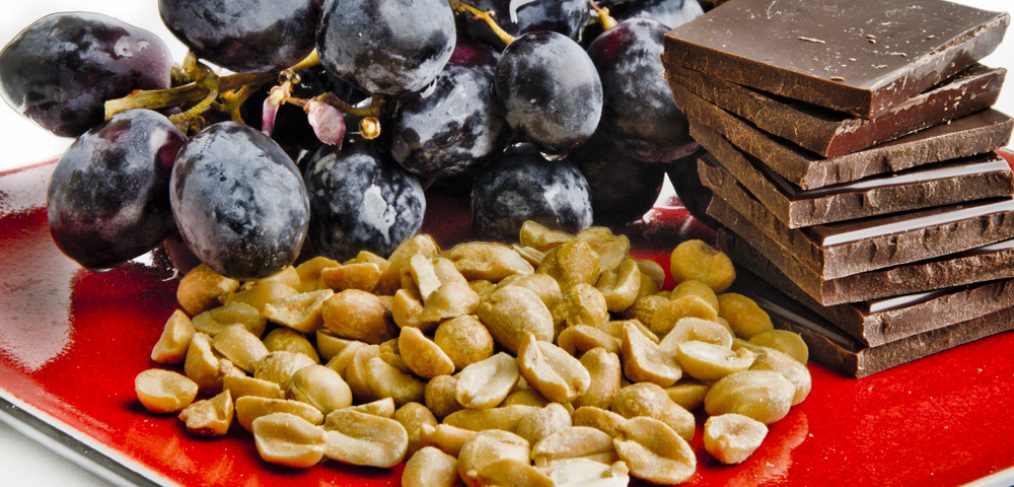
Red Wine & Peanuts Help Prevent Memory Loss
Often we treat our favorite indulgences, a glass of wine or a handful of nuts, as a treat. However, recent scientific advances suggest that those of us who enjoy a luxurious glass of red wine or a handful of savory peanuts may be indulging more than our food and drink cravings. New studies conducted by Dr. Ashok Shetty, professor in the Department of Molecular and Cellular Medicine at Texas A&M University and the Director of Neurosciences at the Institute for Regenerative Medicine, indicate that compounds found in red wine and peanuts may help slow our memory loss due to aging.
The Compound
The red wine drinkers among us, and many others, are familiar with the compound reservatrol. Reservatrol has been the subject of much research and debate for it’s various health benefits. Reservatrol is an antioxidant commonly found in the grapes used to produce red wine, peanuts and some berries. Previous research and studies involving reservatrol indicate that this antioxidant is particularly beneficial when it comes to heart health. Dr. Shetty’s research reveals that the antioxidant reservatrol may have more significant health benefits, specifically where aging is concerned.
The Study
As we age, our spatial learning abilities, our cognitive function, and our ability to create new memories decrease. The same is also true for animals as they age. Dr. Shetty hypothesized that reservatrol would have a positive effect on memory, learning and mood due to the fact that reservatrol affects the hippocampus area of the brain. The hippocampus is the area in the brain responsible for much of our cognitive functioning. The study, published January 28th, used elderly rats, both a control group and a group that was given reservatrol. The control group of rats demonstrated that cognitive and spacial abilities held steady. However, these rats were not able to create new spacial memories and cognitive functioning decreased dramatically around months 22 through 25 of the study. By contrast, the rats that were given reservatrol showed an increase in their abilities to create new memories and an improvement in spacial learning abilities for the duration of the study. Additionally, Dr. Shetty noted that neurogenesis, the growth and development of neurons, nearly doubled among the rats given reservatrol. The rats given reservatrol also showed an improvement of blood flow throughout the body and a lower amount of inflammation in the hippocampus.
The Impact
There are a number of neurodegenetrive diseases, such as Alzheimer’s, that have the potential to affect our quality of life as we age. The research conducted at Texas A&M University proves that there is hope in improving memory, mood and cognitive functioning for the elderly. Dementia and Alzheimer’s are chronic conditions that affect as many as one in six elderly individuals. This study gives hope that there is the opportunity to increase mood and cognitive ability, though there is no definitive evidence to show what the effect reservatrol would have on dementia in the long-run.
The benefits of reservatrol can be achieved with just one glass of red wine each day. Reservatrol continues to illustrate it’s ability to improve our health and well-being. Go ahead and indulge in a luxurious glass of red wine or a handful of peanuts and enjoy the tastes as well as all the potential health benefits.



